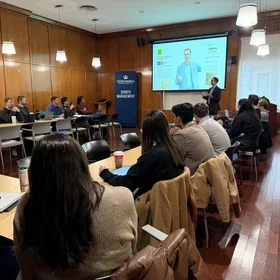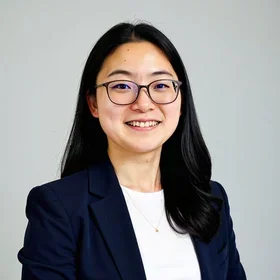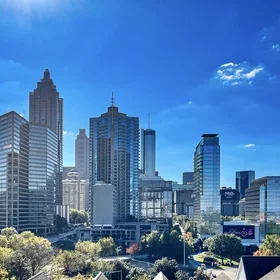Sustainability Management M.S. student Hezekiah Williams has been on a mission to build community among his peers at the School of Professional Studies. A native of Edwards, Mississippi, and graduate of Jackson State University, Williams is a Columbia HBCU Fellow, an officer in the SPS Student Government (SPSSG), and an SPSSG Ambassador to the school’s Diversity, Equity, Inclusion, and Accessibility (DEIA) Committee. He was most recently named the recipient of the Student Dean’s Excellence Award as well as the Campbell Award in recognition of his academic excellence, professional promise, and commitment to building University community and pride. After Columbia, Williams will begin a doctoral program in Mechanical Engineering and Materials Science at the University of Notre Dame. He spoke to us about how he aims to contribute to a more inclusive environment through his work with the DEIA Committee.
What motivated you to join SPS’ DEIA Committee?
The SPS Student Government appointed me as the Diversity Ambassador to the SPS DEIA Committee. However, I decided to nominate myself and compete for the position of Diversity Ambassador because I wanted to ensure that the SPS student body would become more diverse, equitable, inclusive, and accessible for all people, not just the socio-economic majority. Despite it sounding cliché, I want to truly make sure that every student has an equal opportunity to learn in a comfortable and open-minded space.
I was a student government senator at my undergraduate institution, Jackson State University; that position gave me valuable experience engaging in difficult conversations while maintaining a respectful and solutions-oriented tone. DEIA is not a pretty field. You are challenging established systems, practices, and beliefs, and reforming them.
Columbia is an incredibly progressive school, but additional progress can be made. I wanted to ensure that progress was going to truly, positively affect the student body. Many times, DEIA is a superficial initiative for public recognition but from day one, I saw that SPS actually cares. This reality fueled my passion and since then I have advocated for students on every level to advocate for institutional change.
How do you see DEIA transforming or expanding the field of Sustainability Management?
DEIA is a foundational component of sustainability. It has always been and will forever be. Each part of the four aspects of DEIA contributes to the social and holistic prosperity of people globally. The field of sustainability focuses on equity for domestic and global stakeholders irrespective of socio-economic status. Many times, environmental justice and social equity go unrecognized but I see it as my job to ensure that that doesn’t happen at Columbia. DEIA should be weaved into the day-to-day operations of communities; that means that all stakeholders’ needs — including the needs of underrepresented groups — should be accurately understood and thoroughly considered.
Moreover, expanding the foundation of DEIA in the field of sustainability largely relies on the people involved. This is why it’s important to have strong, vocal, and passionate individuals. Globally, there is much to do to make countries equitable in their Environmental, Social, and Governance (ESG) policies. This requires individuals who are goal-oriented and mission-minded, like the people behind the Ellen MacArthur Foundation.
At Columbia, it is essential to incorporate ESG policies into curricula, syllabi, and campus events. Transformative behavior reflects the actions of determined and charismatic people. SPS is filled with these individuals and so is the DEIA Committee. I expect SPS to produce educational materials to inform the Columbia population about ways to be more open-minded and understanding of different cultures. An increased understanding of social growth at Columbia and better ESG policies worldwide due to large nonprofits whose goal is to ultimately create global prosperity and circular economies.
Is there anything special that you and your fellow DEIA Committee members are planning?
My primary focus is the P2P Mentorship Initiative. The model is based on the belief that students learn best from each other. Therefore, the goal of this initiative is to reach students who are beginning careers in Sustainability Management or are pivoting within their careers to sustainability or sustainability-related areas. The scope of this program is to build lifelong mentorships with the ultimate goal of connecting students with opportunities to gain substantive work experience in their desired career tracks. Mentors are vetted, and mentees are matched with the best possible candidate. To maximize the experience for all parties, the Career Design Lab will provide training for both the mentor and mentees during the first three months. Additionally, the SPS DEIA Committee is closely observing this initiative to identify potential opportunities for students in the future. If the program is successful, the DEIA Committee may scale up the P2P model across all of SPS’ seventeen degree programs.


